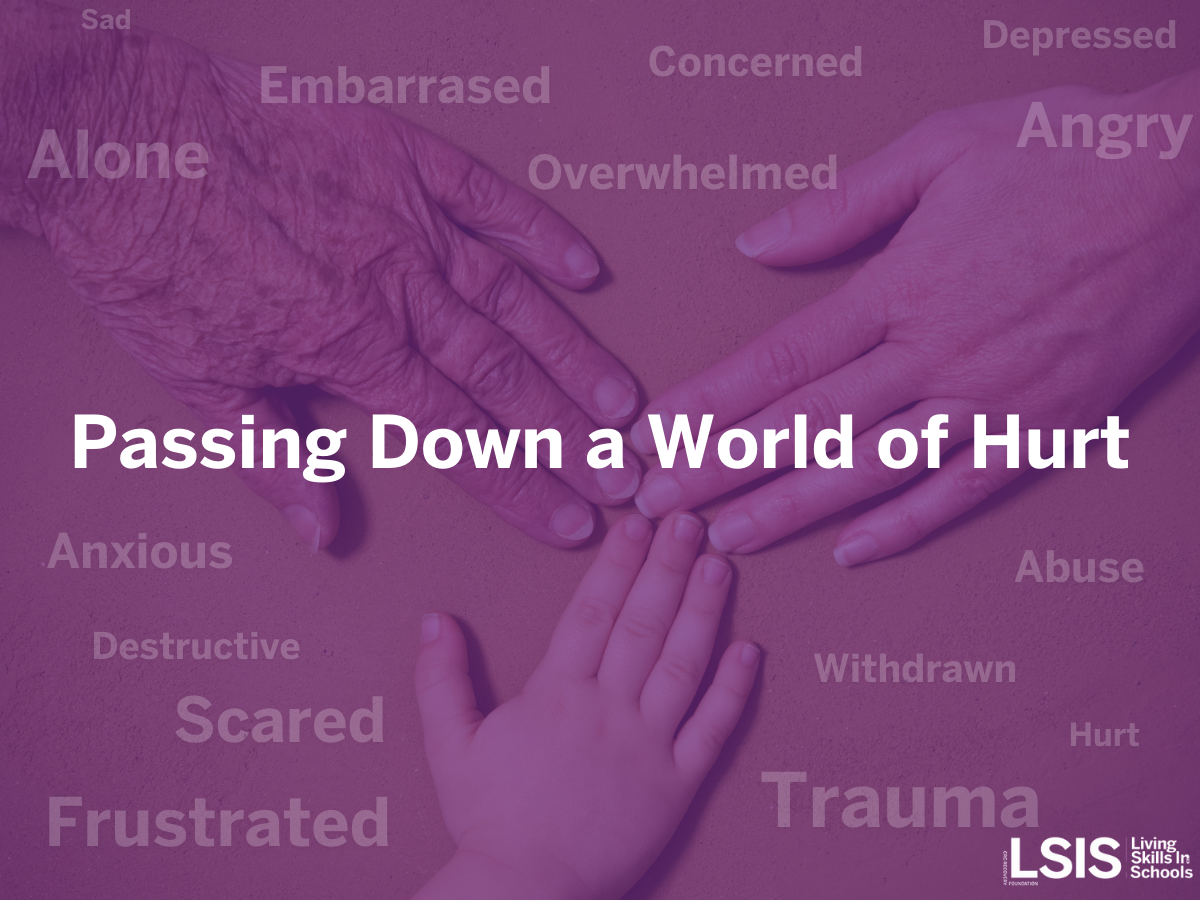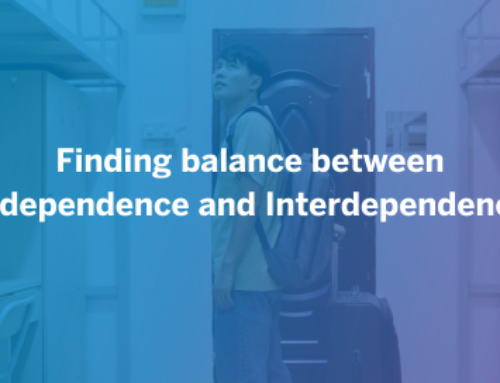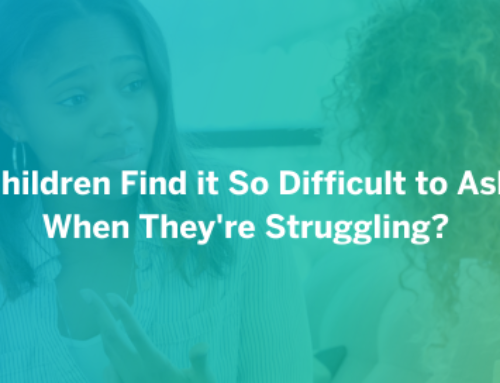
The confusion in the eyes of these children is hard to comprehend. While the prevention message may be enlightening and informative for most students, some are faced with a much harsher truth – one that pertains not just to their friends or public figures but to their parents. For the average student, understanding the course of addiction is a valuable learning experience, shedding light on how drug use distorts the mind, erodes values, and drives a wedge between families. It exposes the concealed sickness of the drug user, making it hard to ignore. However, for the children of addicts, this message takes on a different meaning altogether. When we speak about the immaturity and selfishness inherent in drug use, or the façade that addicts maintain to conceal their slow self-destruction, these students are forced to see these traits in their own parents. The knowledge they are gaining can be distressing and unbearable to accept.
For the student with a parent in active addiction, the image of their parent they confront is heartbreaking. They learn how their parents’ values are shifting, prioritizing their own pleasure over their family’s well-being and mental health. They may understand that their parent’s focus is self-centered, that they are willing to deceive their own children, and that they may be most excited when their family isn’t around so that they can use drugs freely. These behaviors accurately reflect those of myself and my friends. An honest depiction of the drug user requires the presenter to describe the delusion and dishonesty that an addict maintains in order to convince themselves and others that they are okay. In helping the children in the best way possible, I can’t help but connect with a deep fear and sadness in the children of parents who use drugs.
Such is the nature of parental drug use. There exists for the child a disequilibrium between the truth, the most healthy and helpful information, and their image of the adult who is supposed to have delivered that information to them. To receive the best guidance possible is to inevitably understand that their parents have ignored this help and continue to ignore it at their expense. Without deception, there is no way around this ugly fact.
For the child of the addict, maintaining their image of the most important bond they know requires them to engage in self-deception before they have even stepped out into the world. It is no mystery that these children are at increased risk for drug addiction and related conditions. The journey towards alcoholism begins with self-deception, where one denies their worries and reservations, ignoring the deep truths they cannot evade in the pursuit of fitting in or escaping from their ordinary life. Once this is practiced, it becomes a habit, a corrosive skill: casting aside your deepest convictions in order to maintain whatever behavior you next crave.
This inevitable casting aside of their deepest convictions often leads to deep inner turmoil and strife. Research has found psychological characteristics of children of alcoholics (CoA) that are highly comorbid with mental health disorders of every variety, in addition to increased rates of addiction. Codependency issues, impaired interpersonal functioning, anxiety, depression, and low self-esteem are just a few examples of the challenges that CoAs often face. This is further exacerbated by the fact that they are often subjected to neglect in the home environment. Furthermore, growing up in an environment of substance abuse can cause developmental delays, hinder academic progress, and negatively impact relationships with peers and authority figures.
Alcoholic parents impose such acute conditions on their children that they often continue to exhibit unique clinical characteristics into their adulthood, a condition termed Adult Child of Alcoholic (ACoA), which has been extensively researched and documented in scientific literature. One of the key indicators of this condition is a reflexive inability to acknowledge existing problems and dysfunction, a habituated reaction that manifests as a process of deeply ingrained self-deception. In order to adjust to a household characterized by unpredictability and dysfunction, ACoAs develop a coping mechanism of sweeping problems under the rug, maintaining a façade of happiness and normalcy for the sake of keeping the peace.
Parents who abuse substances may try to find solace in the belief that these negative outcomes are only present in cases of debilitating degrees of addiction, abuse, and aggression. However, this couldn’t be farther from the truth. Such outcomes are observed in children of parents across the entire spectrum of substance abuse disorders, which includes criteria encompassing activities that fall well below the threshold of daily binge drinking and violence. These negative effects also extend to younger siblings of addicts. While these family members may hold on to the notion that the child will go along with the act of pretending that there is nothing deeply concerning going on, children do attempt to express the truth about their home environment. I witness this almost every time I deliver a presentation to an elementary or middle school group.
For a brief moment, these students open up about their home situations. This often comes as a surprise to their teachers. It becomes evident that their parent’s drug use has remained hidden until this point. Now, in front of the class, usually not fully realizing the weight of what they are saying, these students ask how they can get their parents to stop. The students usually express their concerns about how to persuade their parents to stop using drugs. They invariably pose this question rather than asking more indirect questions such as “what if you have a family member who is using drugs” or “what would you do if you had a parent who used drugs.” This is the moment I see the confusion in their eyes. They usually aren’t asking this hypothetically or in the sole interest of expressing concern; they genuinely think I will have the fix, the piece of information they can use to make Mom or Dad stop. My wish each time is that the parent could see their child, in front of their entire grade, teachers, administrators, and guest speakers, asking me this question.
I do my best to respond to the question with a combination of honesty and consideration. If they feel safe to do so, I encourage them to tell their parents how their drug use is making them feel. However, I also have to deliver the painful truth that this will almost definitely not cause their parents to stop. It might, but it likely will not. I tell them that interventions usually don’t work at the moment but that they plant a seed in the listener, hurting their ability to maintain the illusion of their behavior as harmless and healthy. We tell them to talk to a trusted adult other than their parents. But most of all, we discuss with them their needs. If mom or dad can’t fulfill them for you right now, if they can’t be the role model you need, if they can’t be the one who supports you, then find the people that will. Do it for yourself. We take a brief moment to empathize with these children and encourage them to be the person for themselves and for others that they know they need.
LSIS is deeply concerned about raising awareness of the condition of children who are at risk of developing mental health disorders. Increasing the resilience and support for such children is equally as important as effective education. The pain and vulnerability evident in the eyes of these children, coupled with their heightened susceptibility to addiction and psychological disorders, underscores the urgent need for consistent support in the school system, particularly for children of addicts. Providing guidance to these individuals from a young age is a crucial step and one that can be pushed forth by counselors, administrators, and programs like LSIS. Lastly, I hope that this awareness and education can reach the parents. I hope that the parent who is using drugs is forced to confront the reality of their child’s condition. Although many parents may change their behavior, as always with the prevention message if we can reach just one, we can make a world of difference.
By: Danny Z
Danny is a in house LSIS Prevention Speaker.








Leave A Comment